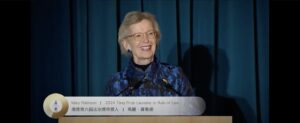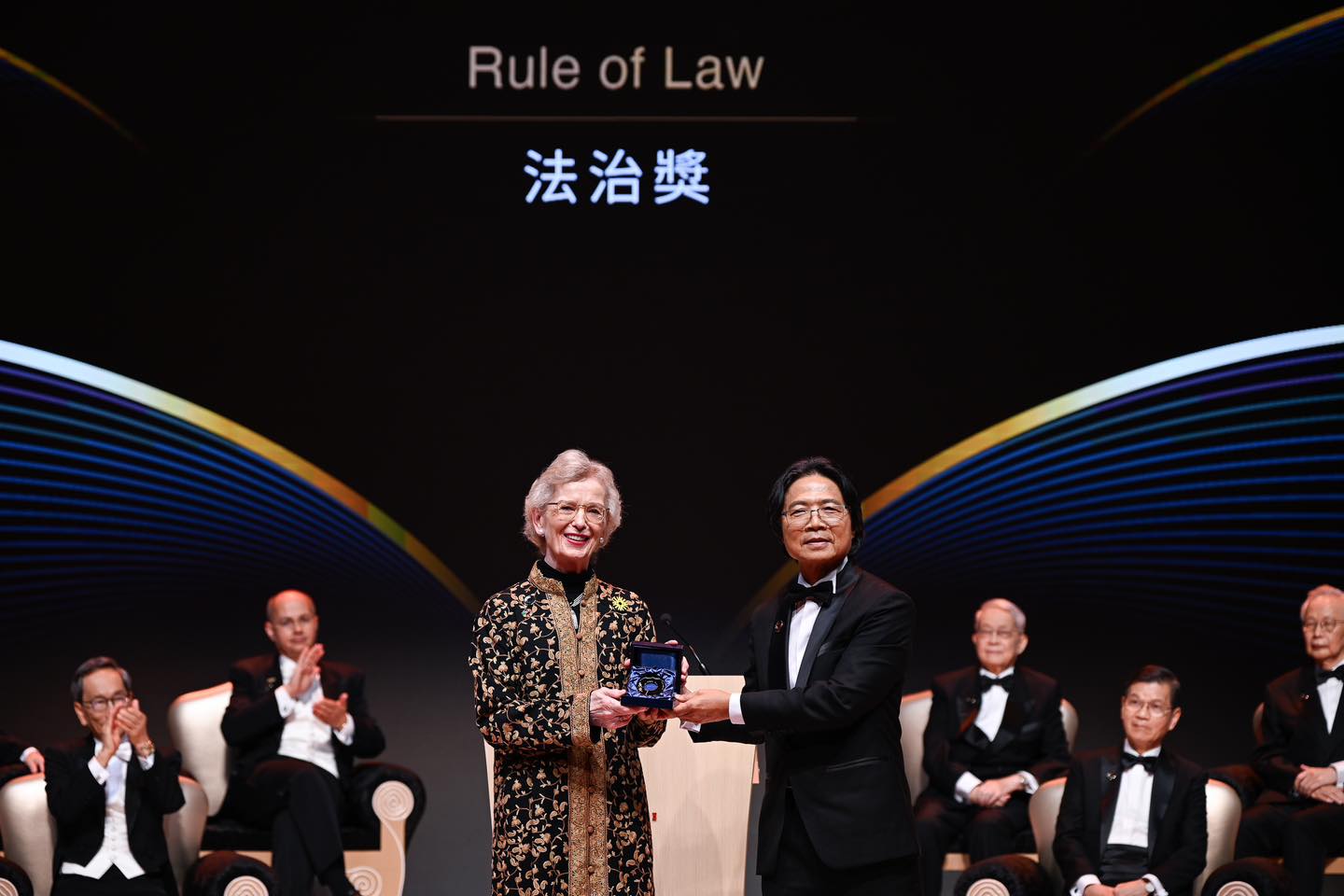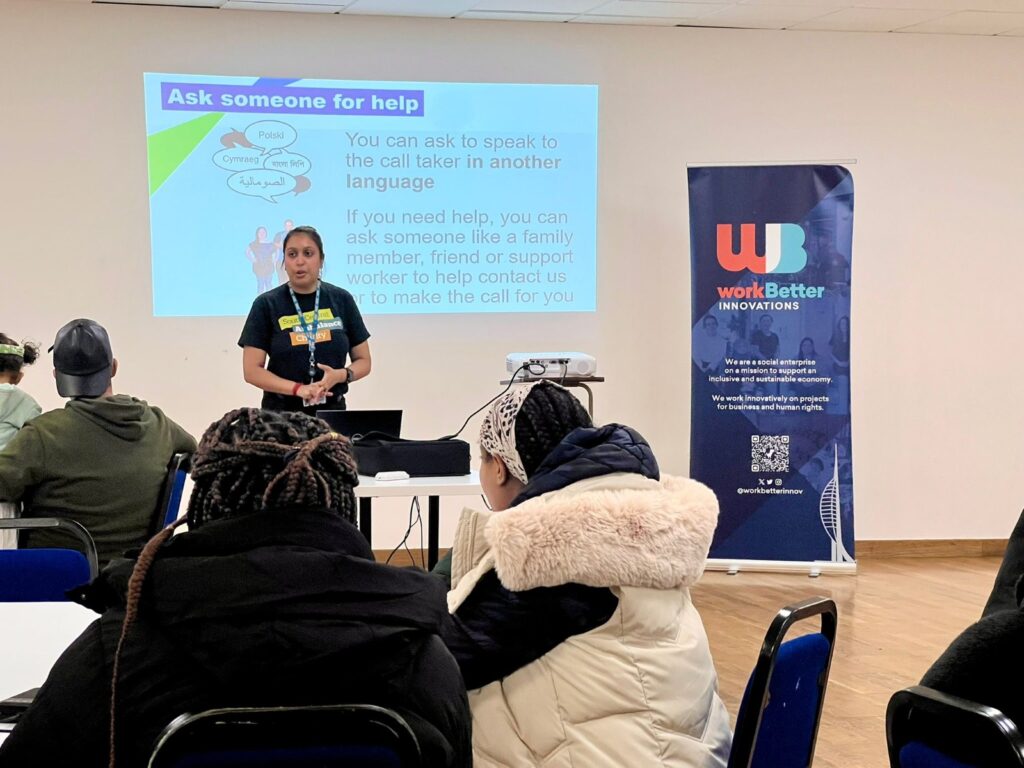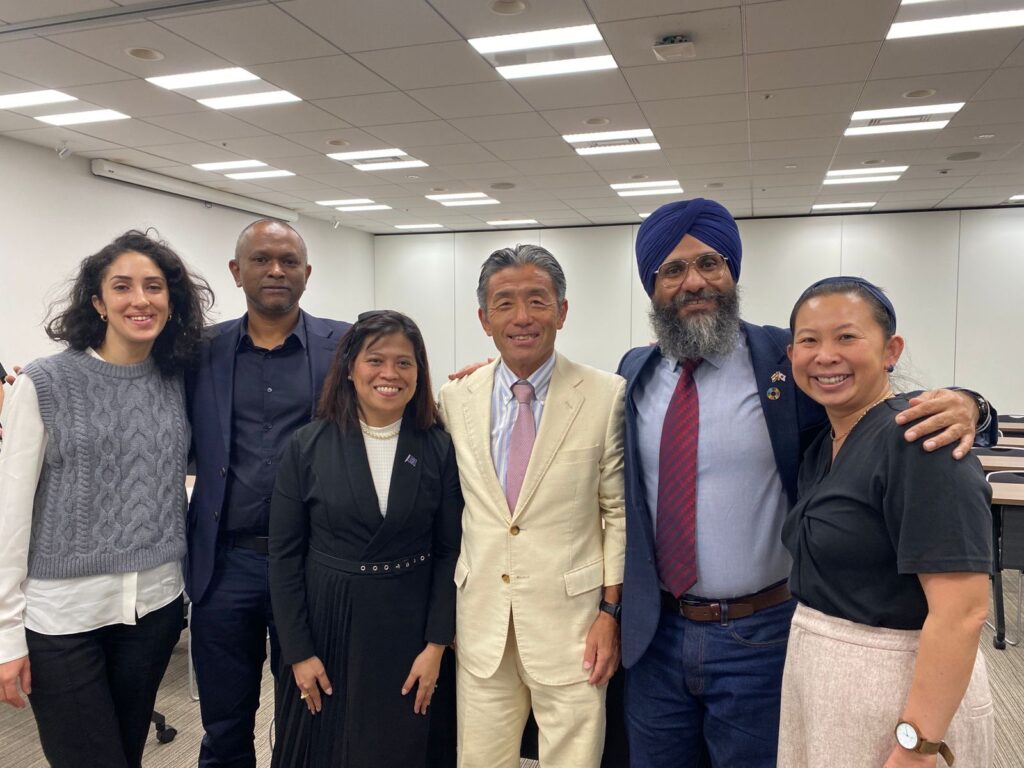18 November 2024. Former UN High Commissioner for Human Rights Mary Robinson highlights Taiwan and Human Rights, and references the WBI-organised 2024 Taiwan Business Forum for Human Rights and Environmental Due Diligence in Tang Prize Speech. The Forum, held in April 2024 in Taipei, aimed to increase corporate awareness of human rights and environmental due diligence amongst Taiwanese enterprises.
Mary Robinson, the 2024 Tang Prize laureate in Rule of Law, mentioned the inaugural International Taiwan Business Forum on Human Rights and Environmental Due Diligence co-hosted by WBI with other partners in April 2024 in Taipei. In her speech the day after receiving the Tang Prize, she underscored the crucial role of government and multinational corporate leaders in steering the world back onto a path that upholds the rule of law, especially in light of the erosion of human rights and the rule of law seen in recent years.

The 2024 Tang Prize in Rule of Law was awarded to Mary Robinson in recognition of her “powerful advocacy on behalf of the most disadvantaged in various areas, including gender equality, poverty alleviation, human rights, and climate justice.” Often seen as the “Asian Nobel Prize,” the Tang Prize is a biennial international award that honours exceptional achievement in four fields: Sustainable Development, Biopharmaceutical Science, Sinology, and Rule of Law. We congratulate all the laureates of this prestigious prize.
Mary Robinson was a barrister, educator, and member of parliament, before elected president of Ireland in 1990, a position she held for seven years. She went on to serve as the U.N. High Commissioner for Human Rights from 1997 to 2002 and as the U.N. Special Envoy on Climate Change from 2014 to 2016. In addition, she was appointed the Chair of The Elders, an independent group of global leaders working together for peace, human rights, and climate action.
In her speech, Robinson called on the private sector to take greater responsibility in respecting human rights, noting that the need for shared responsibility has never been more urgent. This responsibility, she argued, is vital to addressing pressing global challenges such as the climate and nature crisis, the COVID-19 pandemic, and ongoing conflicts and violence. She pointed out that the prioritisation of short-term profits, combined with weak regulatory systems, had led to precarious working conditions and a lack of decent economic prospects.
Robinson also emphasised the importance of localising international norms and standards into domestic legal frameworks. She argued that achieving this, along with securing international agreements such as the U.N. Guiding Principles on Business and Human Rights (UNGPs) and enforcing regional binding laws, requires cooperation among industries, governments, trade unions, and civil society at local level.
“Taiwanese businesses and international brands with value chains in Taiwan all have a responsibility to respect human rights in line with international standards,” Robinson said.
“Ongoing actions in this area should be welcomed,” she added, “and these efforts should continue, including following up on the second version of Taiwan’s National Action Plan on Business and Human Rights and working with partners to make further progress.”






